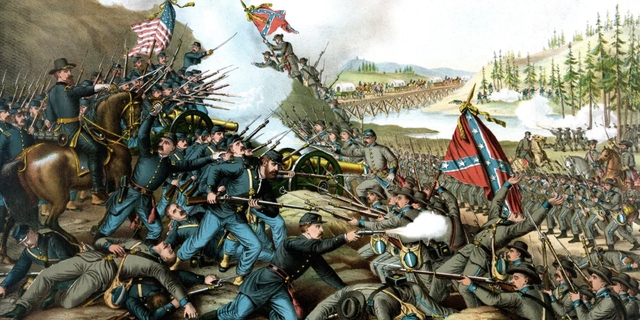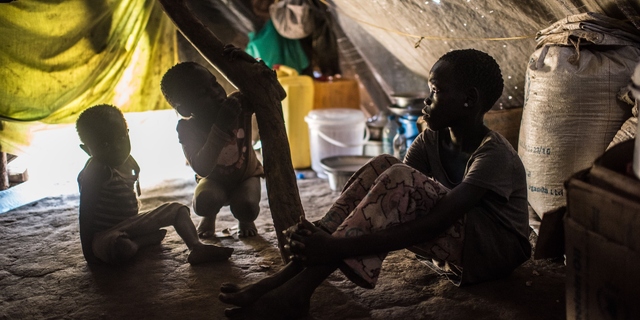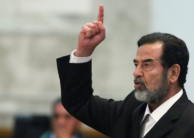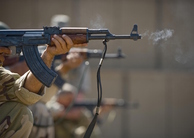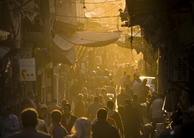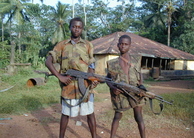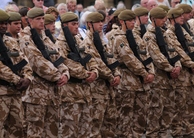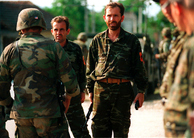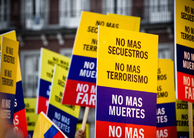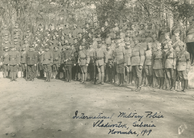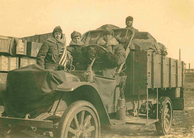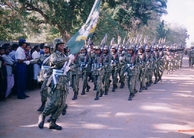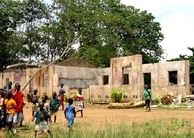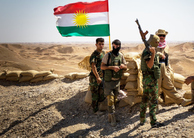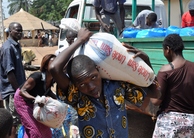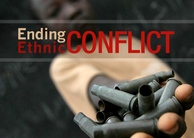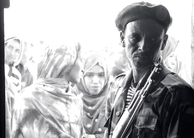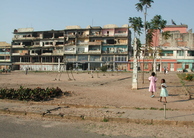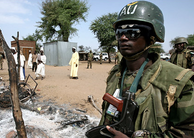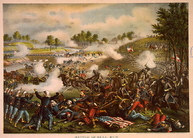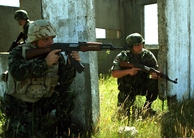|
Civil War (tagged articles)
The keyword Civil War is tagged in the following 31 articles.
2021, Vol. 13 No. 05
Some scholars of American history suggest the institution of slavery was dying out on the eve of the Civil War, implying the Civil War was fought over more generic, philosophical states' rights principles rather than slavery itself. Economic evidence... Read Article »
2021, Vol. 13 No. 01
The Civil War was a seminal moment in the historical development in the United States. The American Revolution may have created the U.S. as a sovereign nation, but the Civil War helped to determine what kind of nation America would become. The Reconstruction... Read Article »
2019, Vol. 11 No. 01
Until the outbreak of Civil War, the United States would continually try and fail to subdue the existential threat of slavery, with each attempt exacerbating the sectional tensions between slave and free states. In 1830, Massachusetts Senator Daniel... Read Article »
2017, Vol. 9 No. 12
In 2010, over 250,000 Syrian farmers were forced from their land due to water shortages. Lack of water left these farmers dangerously food insecure, so they moved, en masse, into Syrian urban centers. This strained an already overburdened infrastructure... Read Article »
2017, Vol. 9 No. 11
South Sudan is the youngest and one of the most volatile nations in the world. After two decades of war, it gained its independence from Sudan in 2011. Peace, however, was short-lived. As oil prices plummeted and competition intensified, an ill-... Read Article »
2016, Vol. 8 No. 05
This paper examines two influential slave uprisings and the treatment these received by both the abolitionist movement and the press. The first section explores the country’s reaction to John Brown’s raid on Harper’s Ferry, as... Read Article »
2016, Vol. 9 No. 2
Ambassador Paul Bremer of the Coalition Provisional Authority, America's interim government between Saddam's fall and the independent establishment of a new Iraqi government, issued two specific orders during his term which combined to create a... Read Article »
2016, Vol. 8 No. 04
In public discourse, Africa and the Middle East have become synonymous with ethnic and religious conflict, whereas Europe is known as a bastion of peace and stability. But are areas known for their ‘high conflict’ truly more susceptible... Read Article »
2015, Vol. 7 No. 10
Headlines are littered with the rhetoric of the powerful. The most present modern crises can ostensibly be reduced to deconstructed, decontextualized and digestible echoes of our world leaders. The Syrian case is not disqualified from this reductionist... Read Article »
2015, Vol. 7 No. 07
Between 1991 and 2002, the small West African coastal state of Sierra Leone was rocked by a brutal Civil War, which killed, injured, displaced, and traumatized millions of men, women, and children. In the aftermath of the conflict, local political... Read Article »
2015, Vol. 7 No. 07
The Civil War in Syria has taken an enormous toll on civilian populations. One of the most commonly overlooked aspect of this crisis is the impact on healthcare in the region. Syria’s health capacity has been ravaged by years of government... Read Article »
2015, Vol. 5 No. 1
Supporting participants in intrastate conflict often appears as a relatively cheap, effective strategy to address security concerns by weakening and distracting enemies participating in those conflicts if not by outright eliminating them. Rebels... Read Article »
2015, Vol. 8 No. 2
This paper discusses Allen Buchanan’s proposed shift in intervention found in his essay, “The Ethics of Revolution and its Implication for the Ethics of Intervention,” and posits that it successfully calls into question other... Read Article »
2015, Vol. 8 No. 2
Colombia has had the longest internal armed conflict in the Western Hemisphere, which has delayed the development of a true democratic system where the government protects individual rights and liberties [1]. The prolonged conflict is a consequence... Read Article »
2014, Vol. 6 No. 07
In March 2011 peaceful protests over the arrest and torture of young Syrians, themselves having drawn slogans refering to the revolutions in Egypt and Tunisia on walls in Syria’s Daraa, led to the killing of six civilians by Syrian police.... Read Article »
2014, Vol. 6 No. 04
In 1914 Russia was a powerful empire. It constituted a fundamental part of the European balance of power. However, years of bloody and costly war changed the nation by bringing to boil all the inequities and discontent built up under the Tsarist... Read Article »
2014, Vol. 6 No. 04
On August 15, 1918, American doughboys landed in Siberia to begin one of the more contentious episodes in U.S.-Soviet relations. The over seven thousand troops of the American Expeditionary Force were to remain for more than eighteen months, playing... Read Article »
2014, Vol. 7 No. 2
Since the start of the Sri Lankan Civil War in 1983, Tamil women have occupied a key role in the conflict. In the struggle for the anticipated state of Tamil Eelam, the socio-cultural role of women underwent, and continues to undergo, a radical... Read Article »
2013, Vol. 7 No. 1
Why did Sierra Leone experience such a protracted Civil War between 1991 and 2002? Sierra Leone has been beset with challenges since achieving independence from Britain in 1961, in particular its brutal Civil War that resulted in tens of thousands... Read Article »
2013, Vol. 5 No. 01
Unfortunately, the Caucasus often conjure images of violence and war in the minds of many people. Indeed, the region has been plagued by violent conflict especially during the collapse of the Soviet Union and through the first decade of independence... Read Article »
2012, Vol. 4 No. 09
The Emancipation Proclamation was arguably the United States’ first step away from hypocrisy and toward true racial equality. However, commentators often obscure its pivotal role in bringing the Civil War to a close by inferring that it was... Read Article »
2012, Vol. 4 No. 05
By 1864 and 1865, the effects of three years of war were like symptoms of a terrible disease afflicting the Confederacy. Internal divisions caused by perceptions of an overreaching and ineffectual government, antagonistic class and state objectives... Read Article »
2012, Vol. 5 No. 2
For roughly a decade, Côte d'Ivoire has been bitterly divided by a Civil War between its dry Muslim north and its fertile Christian south. Many commentators have attempted to ascribe cultural or social origins to this war, casting it as an... Read Article »
2012, Vol. 2011/2012 No. 2
During the armed conflict to topple Muammar Gaddafi in Libya, a common question for observers was “who are the Libyan opposition?” Indeed, for one scholar this was the ‘billion dollar question’,1 and, in the United States... Read Article »
2011, Vol. 3 No. 01
Although peace and pacifism are familiar ideas to most students today, for much of human history these concepts have been relegated to the religious domain and excluded from the study and practice of politics.[1] At the same time, war--organized... Read Article »
2010, Vol. 2 No. 06
Conflict management in the Horn of Africa has been relatively unsuccessful. Foreign colonialism created boundaries that have yet to be resolved, and newly independent nations engaged in conflicts responsible for human rights atrocities, child conscription... Read Article »
2010, Vol. 2 No. 04
Angola today is framed by a history of violent conflict that has left the population far behind on all major indicators. Lacking a democratic culture, the country faces two significant challenges: first, the challenge of completing a long-stalled... Read Article »
2010, Vol. 2 No. 01
After the wave of liberalization of many African states in the late twentieth-century, the world has seen a rise in the amount of international and internal conflicts that have taken thousands of human lives. Ethnic tensions and economic hardships... Read Article »
2010, Vol. 2 No. 01
The legacy of the American Civil War with which we are left is one that emphasizes a participatory American populace, overwhelmingly enthused over and invested in the conflict. Particularly in the North, we are likely to think of a cooperative culture... Read Article »
2009, Vol. 1 No. 12
It is mid-1998. On news programs in the United States, the issue of intervention in Kosovo is addressed as a prevalent concern. It is at least mentioned in every presentation: any progress that's been made or any possible change is offered to the... Read Article »
2009, Vol. 1 No. 10
The Civil War in Guatemala was the longest struggle in modern Latin American history, spanning decades from the late 1950s to the 1990s, and leading to deadly armed conflict between government and rebel militias that claimed hundreds of thousands... Read Article »
Expedited Article Review
Submit an article and get a decision fast.
If you need a fast decision, INQUIRIES Journal offers expedited processing of your submission for a small fee. Depending on the expedited review option you choose, you can receive a decision in as few as 5-days.
In addition to a shorter review period, the fee supports the journal's continued operation and open-access publishing model. Standard submissions are always free. Submit Now » - Submit an Article to Inquiries Journal -
|


